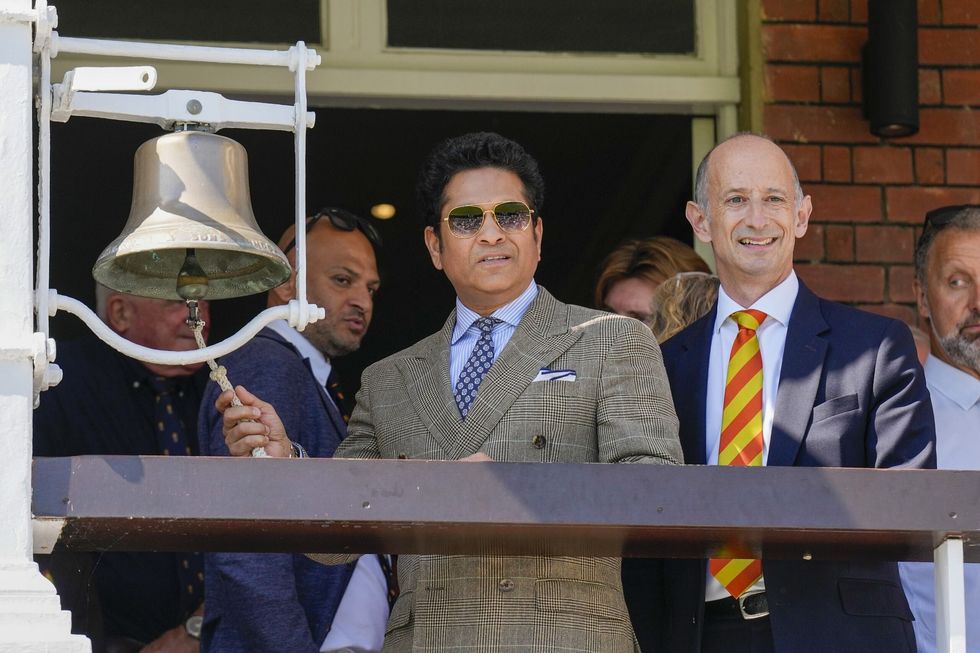by LAUREN CODLING
AN ACTRESS who lived through the 1983 riots in Sri Lanka revealed it was “surreal” to recreate scenes from the deadly ambush in her new Netflix movie.
Nimmi Harasgama plays the lead female role in Funny Boy, which follows the life of a young gay man in Colombo. It is set in the years leading up to the 1983 uprising (known as Black July), as tensions increased between the minority Tamils and the majority Sinhalese. Harasgama was living in Sri Lanka during the Black July killings, an anti-Tamil pogrom where thousands of people died. While working on the film, she was reminded how important it was to tell the story of civilians living during the war.
“(Recreating the scenes) was surreal,” she told Eastern Eye. “Every day of filming, I just felt how important this film is. The problem we have in this world is that these things happen and we forget so easily… then, they are repeated over and over again because there’s no truth, there’s no reconciliation, there’s no justice. When people are able to see something like (Funny Boy), we remember. All of us, not just in Sri Lanka, need to keep reminding ourselves of it.”
Born to a Tamil mother and a Sinhalese father, Harasgama can still recall the violence her family faced during the civil war. On one occasion, her uncle was taken out of his car and beaten with an iron bar. Her aunt had to flee after thugs destroyed her home. “I was only 10 years old, but I still remember everything,” Harasgama, who also spent time growing up in the UK, revealed. “I don’t think you ever forget something like that.”
Members of her Tamil family hid in her house as violence across the country escalated. She can recall the thugs approaching her home and her father urging them not to burn it down. “I remember him saying ‘this is my house, I’m Sinhalese, don’t burn it’,” she said. “I just remember this pin drop silence inside the living room because (all my Tamil family members) were in there, just waiting.”
In Funny Boy, Harasgama plays Amma, the mother of lead character Arjie. In the coming-of-age film, Arjie comes to terms with his sexuality. Amma is shown to adore her son, despite others branding him a ‘funny boy’ for his characteristics. “As his mother, Arjie is my favourite son,” she explained. “He helps me to dress in my saris, and he chooses my jewellery. But the family start calling him funny boy and I don’t see it – I just think he’s just this beautiful boy.”
In Sri Lanka, same-sex activity is still considered a crime and the act is punishable for up to 10 years in prison. Last month, Funny Boy director Deepa Mehta admitted it had been difficult to cast Tamil actors in the film due to its LGBT themes. “You have to understand, Tamils are still a group that is being persecuted,” Mehta said. “It isn’t that easy for them to come out and say, ‘I want to be a part of a gay film’.”
Brandon Ingram, who plays Arjie in his teenage years, identifies as gay. “It is very brave of him to do this film, in this present situation,” said Harasgama.
When preparing for the film, Harasgama (who made her screen debut in 1997 in Mother Teresa) looked to her own mother for inspiration. Her mother also helped Harasgama with some of the dialogue, which is spoken in Tamil. “I looked to my mother, not just for the language, but also on how to play Amma because (my mother) epitomises what this character is, in the best possible way,” said the actress.
The movie is adapted from the award-winning novel of the same name by Sri Lankan-Canadian author Shyam Selvadurai. Harasgama can recall reading the book when it was initially released in the 1990s. Even then, she could visualise the story being adapted as a feature film. “I was just beginning as an actress at the time and I absolutely loved it,” she said. “It’s a book which resonates with me on so many levels.”
Despite its Sri Lankan setting, she is confident that themes relating to sexuality, conflict and family will resonate with people around the world too. “I think it is extremely important to Sri Lankans, but also to others (from around the world),” she claimed. “I do hope that the film is seen as something that’s universal too, that it isn’t just for the ethnic groups involved in that story. It goes much further than that.”
Funny Boy is available on Netflix now





 (Photo credit: PTI)
(Photo credit: PTI)










 Kendrick Lamar and SZA commands the stage at Villa Park during his explosive opening setInstagram/
Kendrick Lamar and SZA commands the stage at Villa Park during his explosive opening setInstagram/
